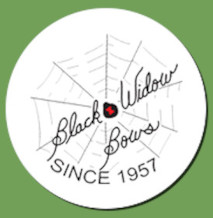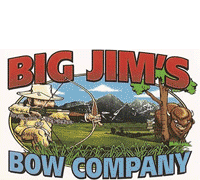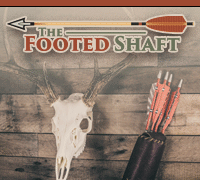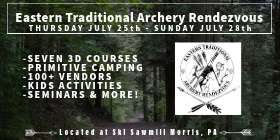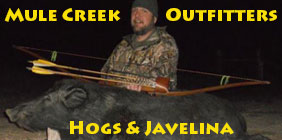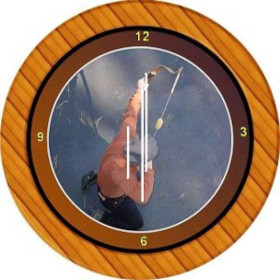William John Compton was born September 28, 1863 in Flint, Michigan. At age seven, his family moved to Norfolk, Nebraska, where the young Will lived among the Sioux Indians. From the Sioux he learned the ways of making bows and arrows, and of hunting with these weapons. He also gained much wisdom and learned humility, traits that would influence his pattern of life for many years to come.
In September of 1877, at the age of 14, Will shot his first deer. He had stalked the bedded deer as it lay on a slight ridge below a rise the young bowhunter had crept up to. At ten yards, the deer stood up and Will slowly brought his bow to full draw, released, and caught the young buck square in its heart. The deer stared at Will for a few seconds and made three short hops before falling over stone dead. Later that same year he took another deer with his bow. In the next few years Will would take up to 20 deer, four antelope, two elk and a bison, all within a 100 mile radius of his home, and all before his 20th birthday.
Will Compton spent many years living and working in Nebraska, Montana, Wyoming and Oregon. His interest in archery grew each year and would soon become the most important force in his life. While working in Montana he became aware of the bowyer F.S. Barnes who lived in Forest Grove, Oregon. In 1894 he moved to Forest Grove and went to work for Barnes. From Barnes he learned how to make the English style of longbow, and how and where to harvest yew wood.
In 1913 F.S. Barnes passed away and Compton, quite confident in his abilities as a bowyer, packed up over 1,000 billets of yew he had harvested and moved to California. Some time later, after Compton had met and become friends with Saxton Pope, Pope wrote that Compton had, "...an unlimited supply of yew."
Not long after he arrived in California, Compton went to meet this wild Indian known as Ishi at the Museum of Anthropology in San Francisco. Upon entering the museum, Will met Dr. Saxton Pope and the two men spent much time talking with Ishi. During the course of that one meeting Dr. Pope became even more interested in archery and bowhunting and soon the three_Ishi, Compton and Pope_became close friends. Pope, up until this time, had only known how to make Indian bows that Ishi had taught him. From Will he learned how to make the English style longbow, a weapon that Dr. Pope quickly became proficient with, and one he would use for his entire bowhunting career.
Will attended an event called the Panama-Pacific Exposition in San Francisco in 1915. While he was in a room that displayed Japanese archery equipment and rituals, he chanced upon a handsome young man who happened to be Art Young. The two men shared their similar interests in archery and Will, who was 52 years old at the time, took Young under his wing and taught him the art of shooting a bow.
Will took Art to meet Ishi and Dr. Pope at the museum. The four became inseparable and spent the next year together making and shooting bows, and hunting the woods. It was during this time when Pope and Young coined the term "Chief" for Will after they had learned of his Sioux upbringing. After Ishi died in 1916 from tuberculosis, Compton, Pope and Young continued to hunt together taking many birds and larger game. But while Pope and Young started turning their interests to bigger game and far away places, Will was content to stay in California and hunt the local animal populations, as well as to teach others the ways of the bow and arrow.
Will Compton passed away in 1938 at the age of 75. Because of his influence in archery, the National Field Archery Association (NFAA) created the Compton Medal of Honor in 1947, awarded to those individuals who have proven themselves as not only excellent archers, but strong supporters of the sport of archery.
William "Chief" Compton was instrumental in the future of bowhunting. His skills and chance meetings helped forge one of the most well-known and important friendships of modern archery
From The Traditional Bowhunter's Handbook by T.J. Conrads





